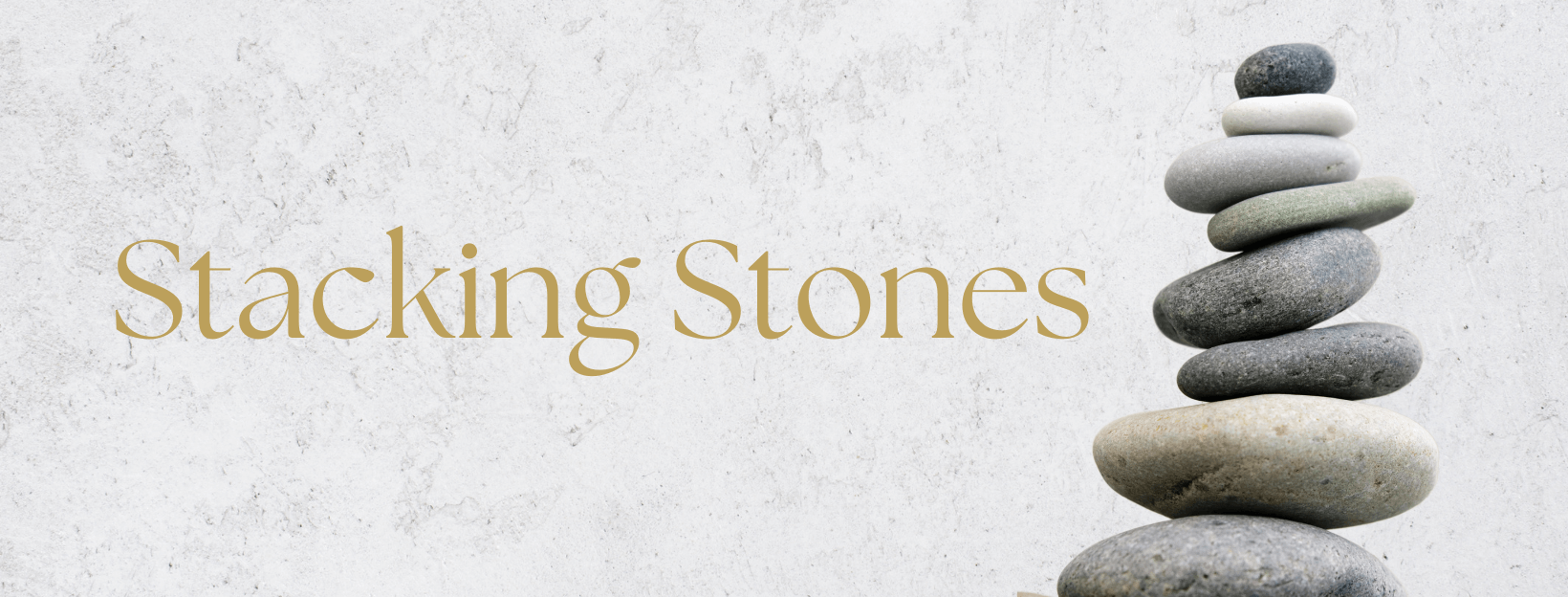Why Ancient Cultures Built Temples in Caves (And What Happens to Your Nervous System Underground)
Ancient cultures from France to India to Australia all made the same surprising choice when they wanted healing, insight, or a brush with the divine: they went underground. What looks mystical on the surface turns out to be incredibly practical—darkness, cool stable air, resonant sound, and fewer sensory inputs can reliably shift the nervous system out of threat mode and into deep restoration (and yes, even vivid inner imagery). Modern neuroscience is finally catching up to what our ancestors seemed to know in their bones: the “sacred” might be a biological doorway into embodied safety and expanded awareness. The best part? You don’t need a cave or a pilgrimage—there’s a simple 10-minute “dark room reset” that brings this ancient wisdom home. If daily life has been loud, bright, and relentlessly demanding, this might be the most unexpected way to come back to yourself.
Read more...Sacred Saturday: The Ancient Alchemy of Abhyanga; An Ode to Self Love This Valentine’s Day
Warm oil, slow rhythm, and firm pressure might sound like a luxury—but Abhyanga (Ayurvedic self-massage) has been used for thousands of years as a daily ritual for grounding the mind and settling the body. Modern neuroscience now backs up what ancient healers seemed to know in their bones: deep, sustained touch sends clear “you’re safe” signals through the nervous system, helping shift the body out of stress mode and into calm. Even more compelling, this isn’t just about relaxation—it’s about rewiring the felt sense of being held, using nothing but warmth, intention, and your own two hands. The post breaks down the science behind why it works, the surprising meaning behind the Sanskrit word for “oil,” and a simple 10-minute practice you can do at home.
Read more...Sacred Saturday: The Proprioceptive Healing Properties of Hot Springs
When life becomes overwhelming and the practices that usually ground us slip away, sometimes the answer isn't another strategy—it's our body's need to feel held and oriented in space. Ancient cultures didn't build temples around hot springs for luxury; they understood something neuroscience is only now confirming: proprioception—your body's internal GPS—is foundational to nervous system regulation, and warm water delivers this input in ways few modern tools can match. When the brain receives clear feedback that the body is supported, contained, and safe, thoughts slow, emotions soften, and connection becomes easier. The solution to overwhelm often lives one level beneath where the problem appears, and sometimes it starts not with insight but with warmth, pressure, and the remembered feeling of being held. Discover why this ancient practice remains one of the most reliable resets available—and how to bring it home.
Read more...Part 2: When Rest Isn’t Enough: How Seeing Differently Helps the Nervous System Recover
When January rolls around and energy crashes instead of soaring, it's not a willpower problem—it's your nervous system asking for a different signal. Across ancient cultures from Taoist China to Indigenous traditions to Zen Buddhism, humans intuitively understood something neuroscience is only now confirming: how we use our eyes directly shapes how safe our bodies feel. While modern life trained us into narrow, effortful focus that signals threat to the nervous system, these forgotten practices softened and widened vision to activate calm and clarity. The good news? You don't need to push harder in January—you may just need to see differently, and a simple 2–5 minute visual reset practice can shift your entire nervous system response.
Read more...Seeing Our Way Through January Burnout?: Part 1: The Mid-January Wall
Mid-January can feel like a confusing crash: the holidays are done, life is “back to normal,” and yet the body and brain feel heavy, foggy, tense, and weirdly stuck. What looks like a motivation problem is often something else entirely—a predictable nervous system drop after weeks of running on stress hormones, abrupt “new year” pressure, and winter biology that nudges humans toward conservation, not max output. When that mismatch hits, freeze, shutdown, procrastination, and decision fatigue can show up—not as personal failure, but as protection. This post reframes the whole experience through a neuroscience lens and offers a gentler, more effective starting point: self-acceptance and nervous-system support instead of more pushing. It also hints at an unexpectedly simple regulation tool (involving the eyes) that can help even when energy is low—without adding one more thing to your already-full plate.
Read more...Sacred Saturday — Light In Winter
Winter can make everything feel harder—sleep gets weird, mornings feel rude, energy dips for no good reason, and suddenly carbs look like a personality trait. The culprit is often circadian rhythm: an exquisitely light-sensitive internal clock that shapes hormones like cortisol, serotonin, and melatonin—meaning the season can literally shift your mood, focus, and rest. This post explores what’s measurably happening in the body when daylight shrinks, why it can mimic (or intensify) Seasonal Affective patterns, and how modern research echoes ancient Arctic wisdom around firelight, ritual, and “social synchrony.” You’ll also get simple, do-today strategies—morning light, dim nights, warm lighting, and predictable anchors—that can reset your rhythm without adding another overwhelming wellness checklist. If winter has been quietly knocking you off-center, this is the gentle (science-backed) recalibration you didn’t know you needed.
Read more...Sacred Saturday: The Wolf and the Horse
Dive into the magical alignment of the Wolf Moon's serene reflection and the Year of the Horse's regulated strength, where ancient wisdom meets modern science to guide us toward true wellness. As winter's stillness invites deep connection and conservation, this celestial moment encourages us to listen to our bodies and communities more attentively, embracing the timeless rhythms nature provides. Unearth how attuned connection, as symbolized by the Wolf Moon, and purposeful, controlled movement, inspired by the Horse, create a harmonious balance vital for our well-being. Learn how to integrate these powerful teachings into daily life, fostering resilience and inner peace by syncing with nature's cycles and attuning to the profound messages within.
Read more...Sacred Saturday: Solstice Nourishment for the Winter Nervous System
Winter isn't just a season to endure—it's an opportunity to embrace nourishment and self-regulation, rooted in ancient wisdom and supported by modern science. As the solstice invites us to slow down, we discover that warming, mineral-rich foods like broths, sourdough, and root vegetables can gently guide our nervous systems into calmness and resilience. By syncing our rhythms with the season's natural demands, rather than battling them, we create space for connection, patience, and clarity. This December, let warmth and nourishment ease the struggle and transform winter into a time of cherished rituals and gentle renewal.
Read more...Sacred Saturday: The Quiet Power of Bridge Builders
Embark on a profound journey of connection, where the seemingly small moments weave the strongest bonds. Discover the power of bridge-building, an age-old practice revered across cultures, that transcends differences and distance to forge deep-rooted relationships. As modern science confirms, those "non-productive" moments of shared laughter, rituals, and storytelling are far from trivial—they are essential for regulating our nervous systems, enhancing resilience, and igniting a sense of belonging. In a world often preoccupied with productivity, this season invites a shift in focus: nurture the sacredness of connection with tender gestures, from a simple "I love you" to sharing a story. Embrace the art of connection, not as a luxury, but as a fundamental piece of our human experience, anchoring us across time and space.
Read more...Winter Wisdom From the North (and Why Your Brain Loves It)
Discover the art of surviving winter's gloom through timeless traditions rooted in light, warmth, and togetherness. Delve into how northern cultures instinctively embraced fire rituals, communal gatherings, and slow crafting to transform darkness into a season of coziness and connection. Today, neuroscience validates these practices, revealing how they promote emotional resilience, regulate the nervous system, and elevate mood. Uncover simple rituals to bring this ancient wisdom into your modern life, creating your own version of gezelligheid, the Dutch essence of cozy connectedness. Embrace these practices to find warmth and serene joy amid the winter chill.
Read more...
















